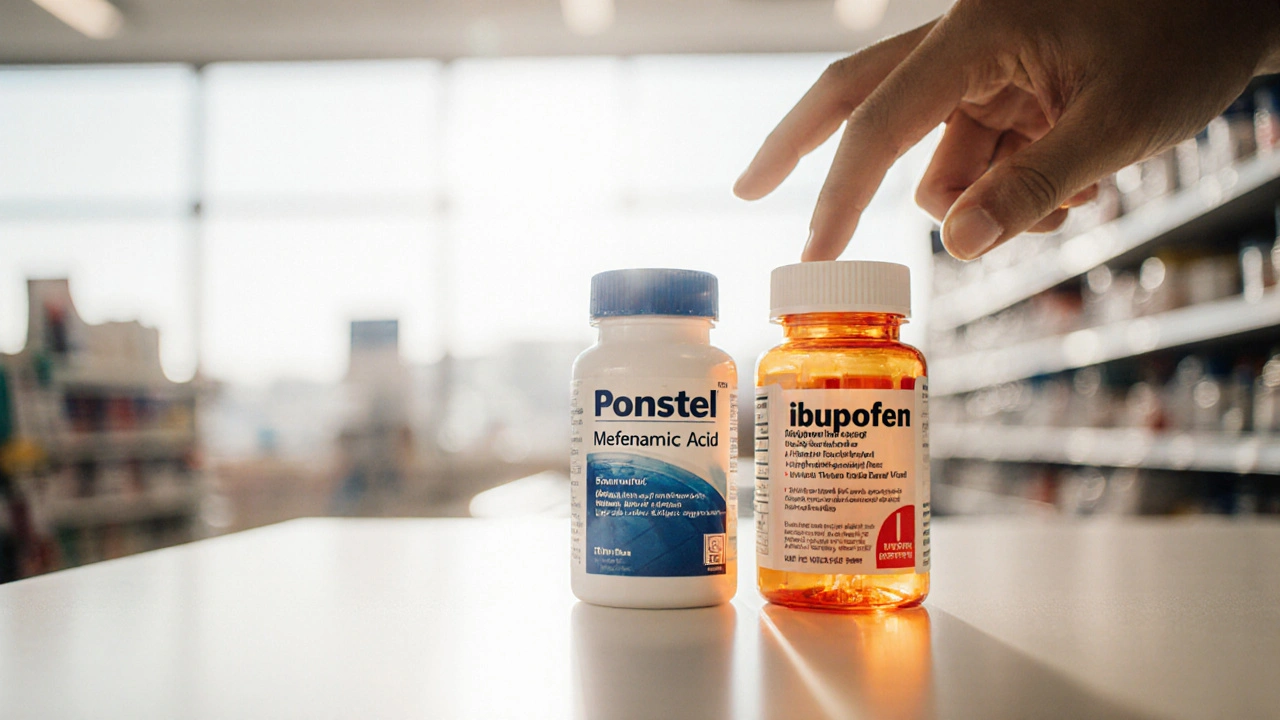Ponstel (Mefenamic Acid): Quick Guide
If you’ve been prescribed Ponstel, you probably wonder what it actually does and whether it’s right for you. In simple terms, Ponstel is a non‑steroidal anti‑inflammatory drug (NSAID) that helps reduce pain, swelling, and fever. Doctors often use it for menstrual cramps, dental pain, or mild musculoskeletal aches. The active ingredient, mefenamic acid, blocks chemicals in your body that cause inflammation, giving you relief without a prescription for stronger opioids.
How Ponstel Works and When to Use It
Think of Ponstel as a “pain blocker” that stops the chain reaction causing soreness. It’s especially handy for short‑term issues like period pain or a sore throat after dental work. You shouldn’t rely on it for chronic conditions like arthritis unless your doctor says so, because long‑term use can raise the risk of stomach irritation and heart problems. If you have a history of ulcers, kidney disease, or heart disease, talk to your doctor first—they might suggest a different option.
Dosage, Safety Tips, and What to Watch For
Typical adult dosing is 250 mg taken three times a day with food, but always follow the exact prescription on your label. Taking it with meals or a glass of milk can cut down on stomach upset. Do not exceed the recommended amount; more doesn’t mean faster relief, it just raises the chance of side effects. Common complaints include nausea, mild stomach pain, or headache. If you notice black stools, severe stomach cramps, or sudden swelling in your legs, stop the medication and call a doctor right away—these could signal serious problems.
Because Ponstel can interact with other drugs, keep a list of everything you’re taking, especially blood thinners, other NSAIDs, or certain antidepressants. Mixing them can increase bleeding risk or harm your kidneys. If you’re unsure, a quick chat with your pharmacist can clear things up.
Finally, store Ponstel at room temperature away from moisture and keep it out of reach of children. If a dose is missed, take it as soon as you remember unless it’s almost time for the next one—don’t double up. By following these simple steps, you can enjoy pain relief while minimizing risks. Have more questions? Your healthcare provider is the best source for personalized advice.

Ponstel (Mefenamic Acid) vs Alternatives: Which Pain Reliever Fits Best?
A clear, side‑by‑side look at Ponstel (Mefenamic Acid) versus common pain‑relief alternatives, covering effectiveness, safety, dosing, and when each option is best.
